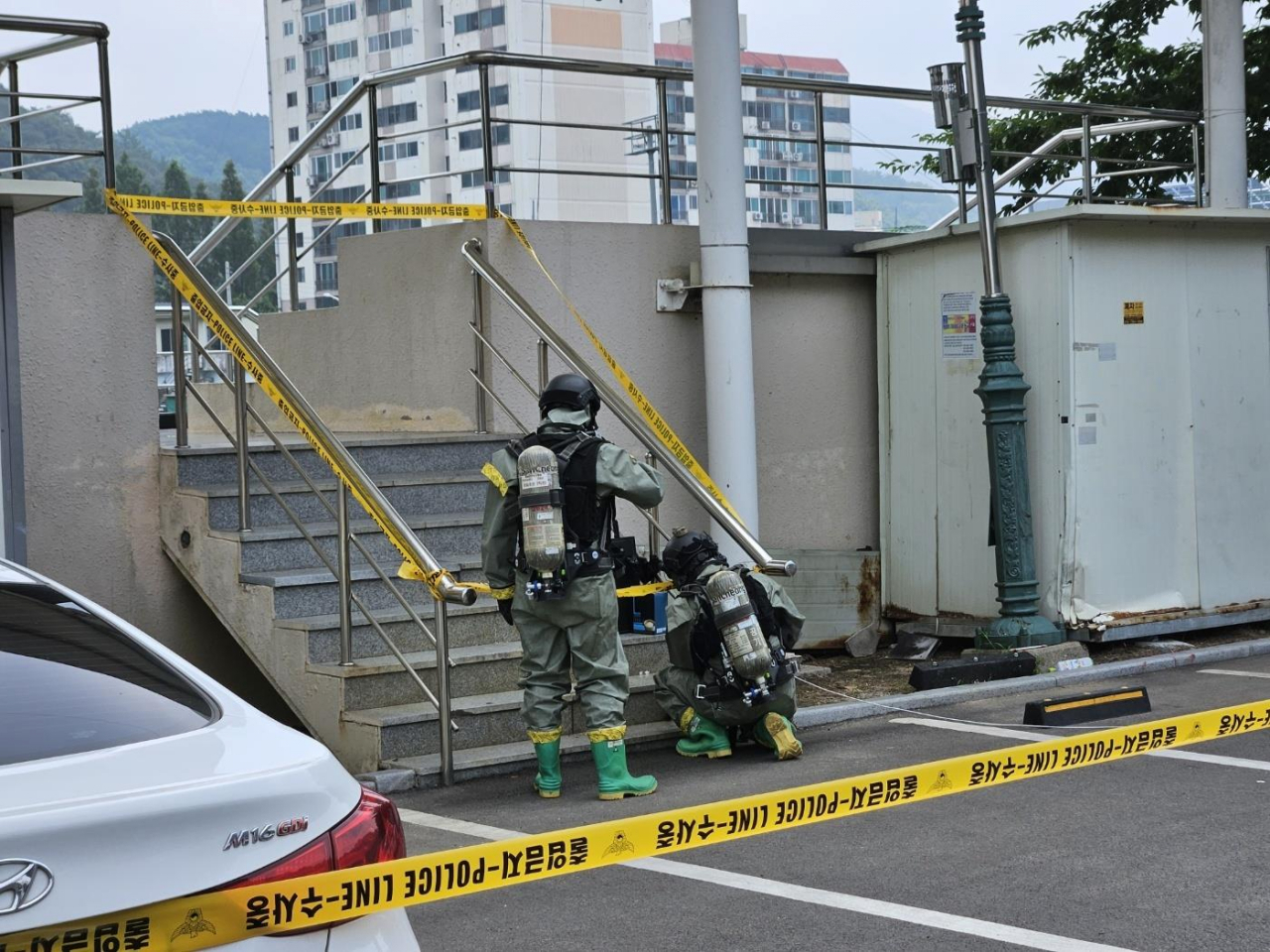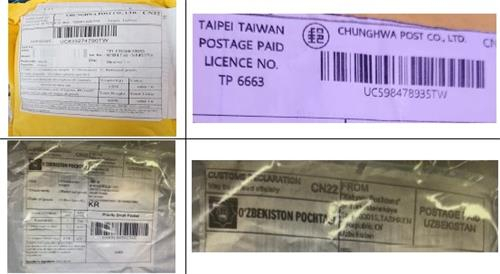 |
Officials from the South Korean military and police arrive at the scene where a suspicious international package has been delivered in Haman-gun, South Gyeongsang Province, Friday. (Yonhap) |
South Korean police have investigated some 2,000 suspicious international packages that have been found across the country for the past four days, with no evidence as of yet suggesting that they were sent as an act of terrorism.
As of Monday morning, the National Police Agency has tallied up 2,141 reports of packages of an unidentified nature received by individuals in South Korea since the first case was reported around 12:30 p.m. on Thursday. Officials have examined 587 of the parcels, which were sent from various locations overseas, and found no traces of hazardous materials such as biochemical or radioactive materials.
The rest were found to have been reported by mistake.
The police initially investigated the packages as possively part of an elaborate terrorist attack against citizens, after the three people who opened the first package Thursday in Ulsan were hospitalized with symptoms of respiratory problems, nausea and partial paralysis on fingers. But an examination by the Agency for Defense Development found no harmful substance, and it was presumed that the unidentified gas that the victims inhaled was caused by a chemical reaction from the adhesive used to put the box together.
A similar scare spread on Saturday in Cheonan, South Chungcheong Province, when an X-ray of a package sent from Taiwan suggested that there could be unidentified gas inside, prompting the deployment of a military bomb disposal unit. A closer examination detected no gas inside the box, and the police officially closed the case Sunday.
While reports of suspicious packages are still pouring in, police are saying that it is not very likely that the packages were sent as an act of terrorism, and they are more likely to constitute a case of a brushing scam that originated from outside of the country. Brushing in e-commerce refers to boosting a seller's ratings by creating fake orders online by using another person's information, and making a shipment of unsolicited items -- usually of very small or no value -- for the order to be considered valid.
The shipments in South Korea were sent from various countries including: China, Taiwan, the US, Malaysia and Uzbekistan. The Taipei Mission in Korea said in a statement that the packages sent to Korea from Taiwan actually first originated from China, and said the Taiwanese police have formed a special task force to investigate the matter.
 |
These photos provided by the Korea Post show examples of international parcels suspected to hold potentially hazardous materials, which have been found in various locations across South Korea since Thursday. (Korea Post) |
Despite these findings, the police said it will maintain the pan-government counterterrorism alert for now. The authorities have advised people not to open packages of unknown origins or nature, and report such cases to the authorities immediately.
As this parcel scare has gripped the nation, the opposition criticized the Yoon Suk Yeol administration for a lack of appropriate measures, while the ruling party fired back saying it was the previous Moon Jae-in administration’s fault.
Rep. Park Kwang-on, the floor leader for the main opposition Democratic Party of Korea, posted on his Facebook page Sunday that the government did not take proper efforts to address the public panic sparked by the suspicious packages. "After the heavy rains and flooding led to a nationwide disaster, people have been shivering in fear with concerns about possible biochemical terrorism, and (the government) has lacked measures to make them feel safe," he wrote.
But the ruling People Power Party said this suspicious package incident, along with a recent rise in phishing scams via the Telegram messenger, have been sparked by the Moon administration having passed a revision of the National Intelligence Service Korea Act in 2020. "Security-related crimes have been expanding in scope, such as cyber hacking and theft of state-of-the-art technology from other countries, and our country rushed the revision of the NIS act in 2020, which led to the fueling of fear and anxiety today," the Rep. Kim Min-soo, spokesperson for the ruling party, wrote in a statement Saturday.
The law revision in question centered on the NIS handing over its investigation duties related to anti-communism and North Korean spies to local police, starting Jan. 1 of next year. The revision triggered a fierce backlash from the then-opposition People Power Party, who claimed that it would weaken the nation's intelligence service while granting excessive power to the police.







